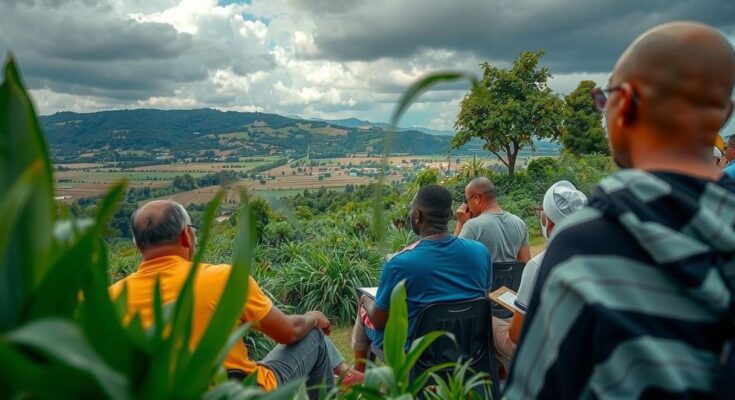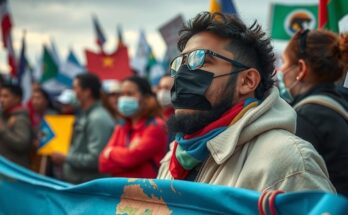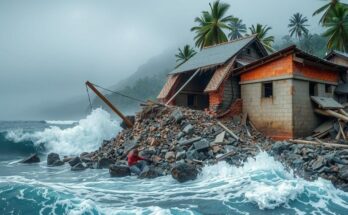KUJ and IFJ hosted a workshop for 18 Kenyan journalists to enhance their skills in climate change and environmental reporting. The event addressed the pressing need for accurate media coverage of climate issues in Africa, highlighting challenges such as lack of data and resources. Key discussions included the importance of storytelling, cultural sensitivity in reporting, and the necessity of accountability in climate finance.
A recent workshop organized by the Kenya Union of Journalists (KUJ) in collaboration with the International Federation of Journalists (IFJ) convened 18 journalists from a variety of media houses across Kenya. The purpose of this gathering was to enhance the participants’ skills in climate change and environmental reporting through improved storytelling techniques. Eric Charles Oduor, the Secretary General of KUJ, emphasized that climate change represents the most significant narrative of our time. He highlighted the media’s critical role in combating climate change, pointing out the under-reporting of these issues in Africa despite the continent’s severe exposure to the impacts of climate change. Oduor urged the journalists to produce reports reflecting the challenges faced by local communities regarding climate change, as well as their efforts for mitigation and adaptation. Pa Louis Thomasi, Director of the IFJ Africa Office, acknowledged the difficulties African journalists encounter in reporting climate issues, including limited access to reliable data and government reluctance to share information. He noted that these barriers hinder accurate reporting and that many private media organizations lack the resources needed for thorough investigative work. Innately, there is a shortage of journalists specialized in climate change reporting throughout the continent, underscoring the necessity for further training in this field. The lead trainer, Marvel Powerson, a communication consultant and member of the Kenya Climate Change Working Group, asserted that effective climate journalism should challenge misinformation and utilize credible sources. She advised journalists to understand the cultural contexts of the communities they report on and to engage directly with those affected by climate changes. The workshop covered numerous pertinent themes including the media’s role in climate action, essential tools for climate journalism, case studies of successful climate reporting, issues of media freedom, and emerging trends within this field. As a significant outcome, the workshop highlighted the urgent need for improved climate change reporting in the media, underscoring the ongoing struggles many journalists face in accessing vital information. It also reinforced the importance of accurate reporting that can hold governments accountable and drive meaningful climate action.
Climate change poses a severe threat globally, but it disproportionately impacts African nations. Journalists play a vital role in shaping public understanding and policy responses to environmental issues. However, there is a notable gap in climate reporting in Africa, attributed to various challenges, including lack of resources, limited access to data, and insufficient training for journalists. Initiatives like this workshop aim to equip journalists with the skills and insights necessary to tackle these barriers and effectively report on climate issues that affect their communities.
The workshop organized by KUJ and IFJ served as a crucial platform for enhancing the capabilities of journalists in Kenya in addressing climate change and environmental reporting. By integrating storytelling with research on climate issues and ensuring journalists engage with affected communities, the workshop aimed to foster greater understanding, transparent reporting, and ultimately, accountability in climate policies. With the media being integral to climate action, such initiatives are necessary for equipping reporters with the essential tools they need to inform and engage their audiences effectively.
Original Source: www.ifj.org




